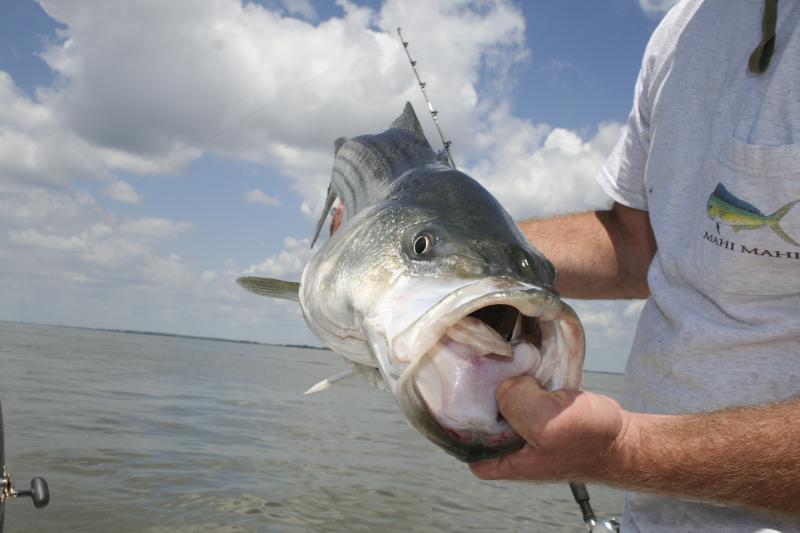Fishermen need to get involved in decision-making
In my last article, I told you about my week in Falmouth, Mass., where 25 of us learned how to get involved in the process of fisheries management. As I stated then, I have been involved in that process for quite a while, but this week I decided to pass along what they preached to us during that time in Falmouth to my readers in hopes that the recreational fishermen among you will become more involved in the process and let your opinions be heard.
The first thing that happens when a regulation is considered would be that a scoping document is released by the agency considering the regulation. If the regulation is for striped bass, that agency would be the Atlantic States Marine Fisheries Commission, because striped bass are governed by that group due to the fact that those fish are usually caught inside three miles. If the species is summer flounder, the Mid-Atlantic Fishery Management Council and the Atlantic States Marine Fisheries Commission would jointly manage them because they are caught inside and outside the three-mile limit. Highly migratory species such as tuna and billfish are regulated by NOAA because they only travel outside the three-mile limit.
The scoping document is the first chance the public has to express thoughts on the regulation. These comments usually go right back to the commission or the councils, and are recorded by their staffs.
Following this document, there will be public hearings where you can speak about the new regulations either for or against, or suggest some modification.
This is where recreational fishermen do not shine. I make most, if not all, of the public hearings in Delaware, and I can count on one hand the number of other recreational fishermen in attendance. There will be Roy Miller, Ron Smith and perhaps one or two others, but we will be put to shame by the number of commercial and for-hire fishermen in attendance. It’s no wonder we get the dirty end of the stick.
If I learned one thing while at the week-long seminar, it is that most of the people who make our fishing regulations do not fish. The information they receive comes from public comment, fishing surveys, phone surveys and the occasional observer reports. If they see a report from a public hearing where only five recreational fishermen showed up, they are going to conclude that this is not a very important subject to that group. Now if 25 or 30 commercial or for-hire fishermen make the hearing, I believe the regulators are going to put a lot more weight behind their comments.
Now, it is nice to show up, but is also good to have some idea of why you are there. Please, before you go, read the proposed regulation and form an opinion. Make your statement brief and to the point. Don’t wander off telling fish stories or complain about things that have nothing to do with the subject at hand. There is no shame in writing notes or even your entire comment. Some folks get nervous speaking before a crowd, so having everything written down can be a big help.
Some projects require funding. This is where you will need help from your state and federal senators and representatives.
I was working with Sen. Tom Carper’s office trying to improve the Marine Recreational Information Program when he up and retired. Now I must begin again with either Sen. Chris Coons or Sen. Lisa Blunt Rochester. Considering the mass confusion in Washington right now, I don’t think fisheries information will be high on either senator’s agenda. Then again, a data collection amendment was the second part of the scoping document I received, so there is a glimmer of hope.
Before the pandemic, most, if not all, the hearings were held in person. Now, most are virtual. You don’t even have to leave home to participate. You can attend the hearings on your phone, your laptop or even, like me, on your desktop computer. The same rules apply. Know the subject well. Have all your ducks in a row. Tell them why this is a good or bad idea. Know what you want to say, and make it brief and to the point.
If you don’t want to speak at the public hearing, you can send an email or letter. I have already sent an email expressing my displeasure with the idea of sector separation. Written comments have just as much clout as those spoken at public hearings. At the end of each scoping document announcing the new regulation, there will be information on who to contact if you want to email your comments or if you prefer to write a letter. With so many different ways to make your feelings known, there is no reason to remain silent.


















































